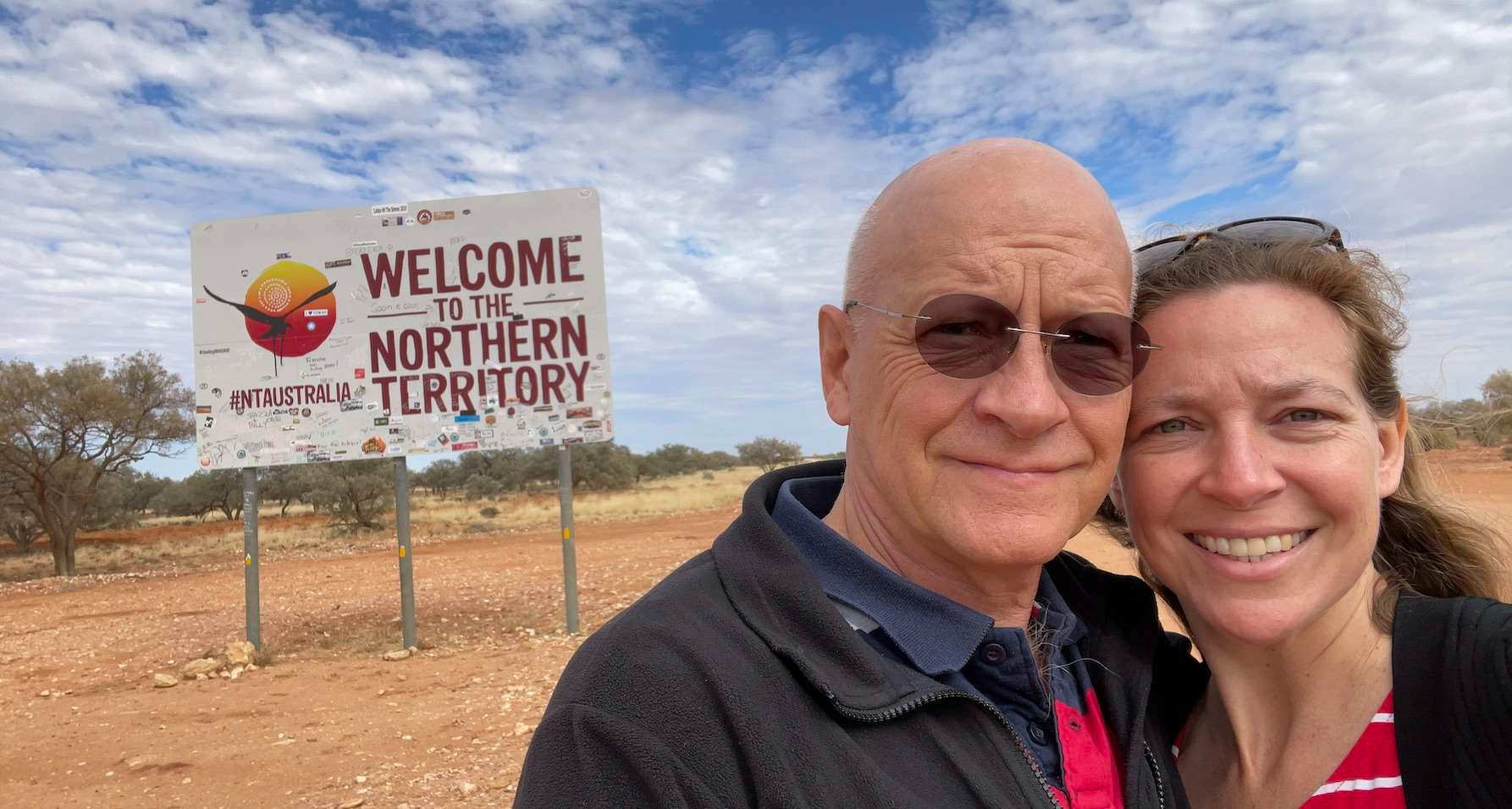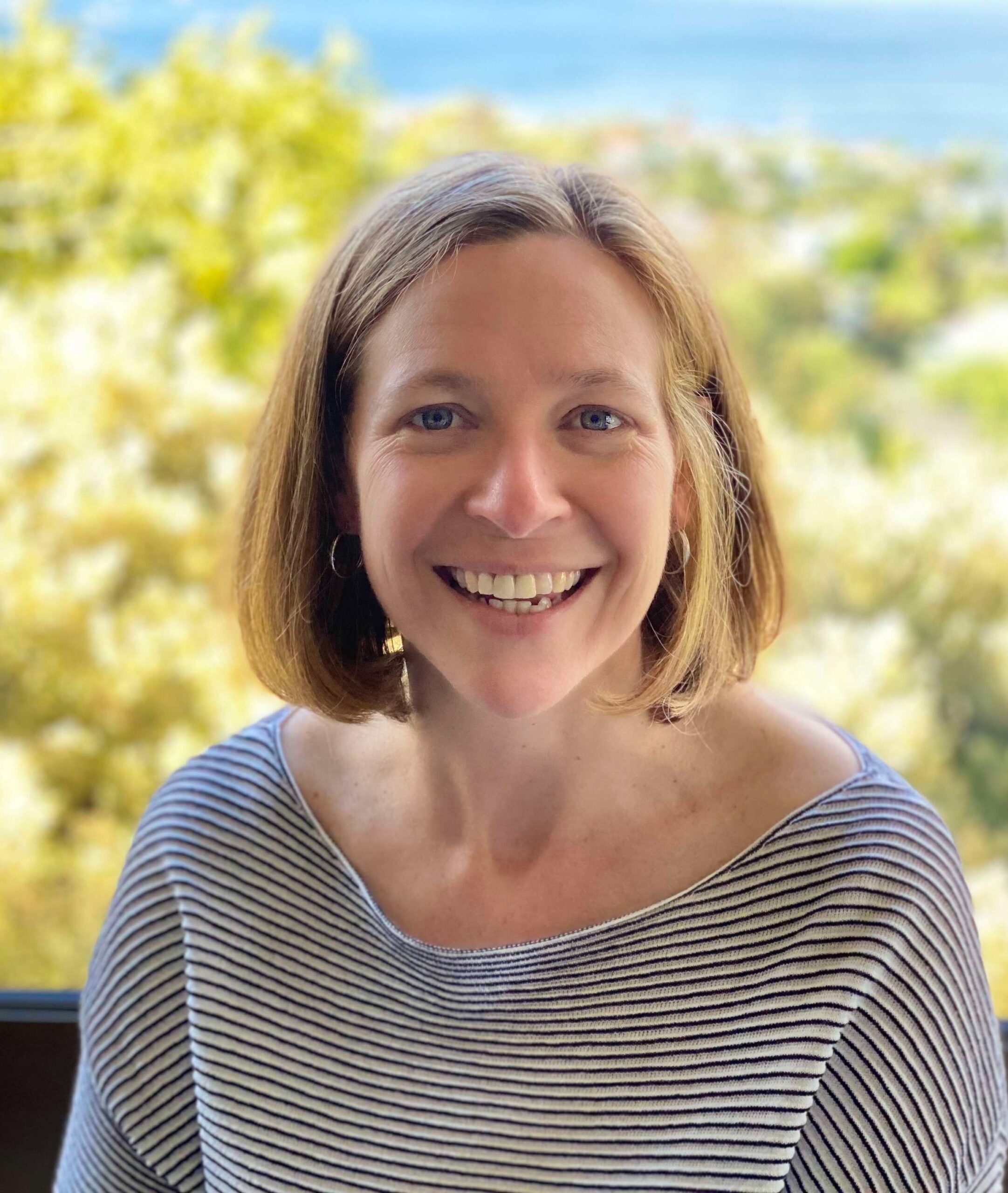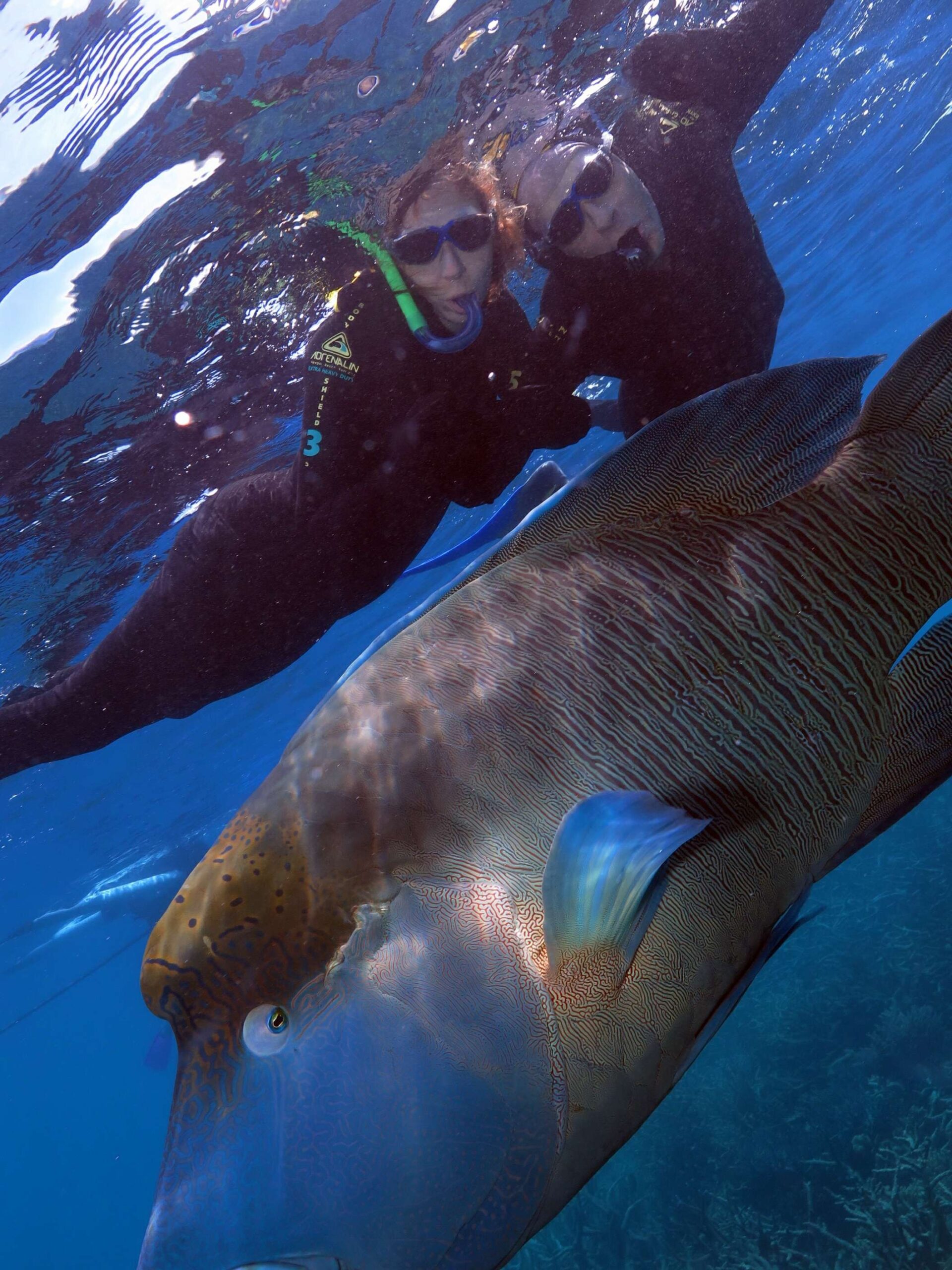As a young girl growing up in rural South Africa, Ronda Gurney wanted to be a teacher.
Having completed her GP Fellowship with RVTS, she is now putting her passion for medicine and education to great use as RVTS’s Director of Training, while also working as a GP in Queensland, writes Patrick Daley.

My interview with Dr Ronda Gurney starts with her apologetically warning – “I talk too much, so please, if I am doing that, tell me to just stop!”
By the end of the interview, I am glad I didn’t.
Ronda’s is a fascinating journey across both the globe and Rural Medicine.
It has culminated in an ideal role for her – heading up RVTS’s training program – and as an International Medical Graduate, she is keenly aware of the challenges that her fellow IMGs face as they work in remote Australian towns.
Ronda grew up in a regional town 300 kilometres north of Johannesburg, close to the Zimbabwe border.
“I loved school, did a lot of sport and learnt piano – and didn’t even think of doing medicine until much later” she says. “Our family spent a lot of time outdoors, so it probably did shape my interest in going rural.”
An aptitude test at school highlighted Medicine as a potential career choice.
“I thought Medicine would be great because I enjoy challenges – and it was certainly that.
“To be honest, if I had the time over I reckon I would have quit somewhere along the line, it was too much of a challenge at times!
“But when I got to Australia and started working as a GP, I finally felt that this was a career path I did enjoy.”
The challenges Ronda faced during her initial medical training shaped her interest in being a medical educator.
“The training in South Africa was very thorough, and I feel privileged to have trained there, but they threw you in the deep end a lot – so you needed to work closely as a team with the other students.
“That probably helped shape my mindset in wanting to support young doctors who find themselves in a challenging situation.
“A great lesson I took away was that you can be challenged beyond your comfort zone – as long as there are boundaries and a safety net, it’s okay to feel uncomfortable and you actually grow that way.”
The decision that Ronda and her husband Clive made to move to Australia was not an easy one.

“There were a lot of reasons to come to Australia but there were also a lot of reasons to stay in South Africa too” she says.
“Over the twelve years we have been here, the reasons to stay in Australia have grown but there is still a feeling of sadness at having left South Africa.
“Talking to other IMGs, this is true for a lot of people – you’ve almost got a foot in both camps.
“My heart will always be in South Africa, but whenever we come back to Australia I think ‘Oh, this is also home’ – so both countries have a special place in my heart.
“Leaving your birth country is such a difficult decision to make.
“And as doctors, all of us have done a medical degree in our home countries, so it almost seems that we have to re-do that, go through more exams, and figure out our path again in an unknown system.
“It takes years to find your feet again, and RVTS played a big role in helping me with that. A big part of that was being able to talk with people who had done what I was doing, and had found their path in Australia.
“Especially in the last little while with COVID, as an IMG I can truly understand the extra burden of having family members we can’t visit. The reality of being able to just get on a plane and go home has changed – it is great we can touch base over Zoom but it’s not the same as being able to give your mum a hug.”
A lot of support that RVTS provided to Ronda was through the connections it offered.
“Knowing and getting to understand how other IMGs overcame their challenges, and seeing they were coping, made me think that I can do this too” she says. “Having an organisation that is so friendly and welcoming, not only to me but also to my husband, made such a difference.”
After arriving in Australia, Ronda worked for some time at the Royal Hobart Hospital – “I couldn’t have asked for a better place to start Medicine in Australia” – before she took up a GP role in the small Tasmanian fishing community of Dover, which boasts the southern-most General Practice in Australia. It was there that she heard about RVTS’s remote GP training program – and found out she was eligible to join it, given her District of Workforce Shortage location.
“I got my Fellowship in my second year of RVTS training, and was then told I didn’t need to do any more workshops – I was devastated!” she says. “So I did a FARGP and stayed on in Dover for another three years – making it six years in total, in what was really a beautiful place.
“But my husband – a South African man who likes to be outside ‘braaing’ (or BBQ’ing) – didn’t like the Tassie weather. That’s how we ended up on the Sunshine Coast.”
Ronda says the highlights of her time as an RVTS registrar were the workshops – both the skills learnt and the chance to meet other registrars.
“They were a great opportunity to get together with other doctors who understand the challenges; lovely down-to-earth people who really want to get to know you and support you on your journey towards Fellowship” she says.
The biggest challenge was one that keeps coming up for many registrars – time management.
“As primarily a solo GP at Dover, the clinical workload was huge and trying to balance that with study was incredibly challenging. I managed to carve out time to study, usually early morning before the craziness of the day started.
“Self care is so important – you have to look after yourself – and RVTS goes a long way in empowering registrars to say to practices, ‘I need time to study’.
“When you come from overseas your visa is tied to your job, so you might not feel you have that power to say you can’t work 24/7 – but you can stand up for yourself.
“As soon as I asked for time off to study, the answer was always ‘Yeah sure! We know you have a lot of stuff on’ – so it’s not that anyone is out to flog the doctors, it’s just that as long as you keep saying ‘yes’ there’ll be more to do!
“The RVTS family is very helpful in enabling you to bounce ideas off each other in that sense.”
Once Ronda completed her FARGP, she began working with RVTS part-time as a webinar facilitator and then stepped in to help organise the webinar program.

“That started as one day a week, looking at learning objectives and resources, and it just kept growing to also be assisting with the development of our online platform” she says.
“I soon realised my love of teaching was still in my bones.
“Medical education is not so much about teaching, but more about facilitating learning. Helping people identify what their learning needs are, and then facilitating that ‘ah ha’ moment when they discover it themselves, that’s pretty awesome!
“It’s also really satisfying helping our registrars with the challenges they come across – and helping them find solutions.
“Usually it’s just thinking about how things can be tweaked a little to make a big difference.
“Because RVTS has so much knowledge and expertise, and so much support available, if registrars can embrace this and make the most of it they will benefit hugely.
“We encourage our registrars to talk to us early if they are facing a challenge. Sometimes just telling somebody can be part of the solution, and it’s disappointing when I hear of a registrar who has been struggling for a long time and hasn’t told anybody.”
Ronda says technology has changed markedly since her time as an RVTS registrar.
“When I started as a registrar, we did teleconferences – everyone dialled in and had been emailed out the Powerpoint slides, and we were told ‘OK, we are now on slide 3’ – so to now be able to actually interact with people by video, share screens, and even have registrars draw on my screen, that’s just been amazing.
“Now we have the RVTS online platform, and Facebook and WhatsApp have come along, that’s changed everything as well – there’s a huge amount of education material now available online.
“The next step is going to be TikTok – watch this space!” she laughs.
“The exciting part is staying up-to-speed with what people are using, and making sure we are adapting our education to make it as accessible as possible.
“COVID has really brought our online learning system to the fore – and highlighted the value of that extra connection when you can also see and hear people online.”
Ronda says the great benefit of RVTS’s online platform is that registrars can use it when it best suits them.
“Registrars tend to do things in very small chunks and tailored to their needs, and the flexibility of our platform is a huge bonus in that regard. Our registrars can engage with it as much or as little as they want.
“The other great benefit is being able to curate the huge amount of resources out there into something we can say to registrars are ‘must read resources’.
“And what registrar doesn’t like a good exam question? There’s over 180 exam questions on the platform, so that’s definitely a highlight!”
She says that, in both its face-to-face and online education, RVTS knows there are certain topics that registrars struggle with – like dermatology, ophthalmology and women’s health – and also that new registrars find it difficult in not having an answer to every condition they are presented with.
“GPs have to be specialists in the undiagnosed and undifferentiated problems” she says.
“At medical school, we are used to having the answer and treating everything, but in real life it doesn’t work like that – there’s not always an answer, or it might come later – so that’s a focus for our training as well.
“We also have a tried and tested pathway to ensure that knowledge is gained at the right time. So for example, the webinars and workshops in the first year of our program focus on the big, nasty and dangerous things and the really common things, and then in the second year we focus on the more undifferentiated problems but common things you’ll see in General Practice.
“In the third year, we move onto things that aren’t really in the exam but are very important – things like mentoring and teaching skills, facilitation skills and managing disasters.
Ronda says that so much has happened in the technology space in the past decade, it is exciting to see what the next decade will bring.
“Wouldn’t it be nice to know?” she laughs.
“I wish I had more time to explore virtual reality, augmented reality and the role that might play in medical education – I think that might be the next frontier!
“But I think COVID has demonstrated to more people that remote education is very valuable. RVTS has a solid 20 year record in this space, so the sky’s the limit.”
She adds that the use of remote education can really assist in meeting the rural medical workforce shortage head-on.
“We don’t want to put registrars into a rural community, then take them to the city for their training, and then expect them to go back to the bush – because they’ve often built a life in the city by then” she says.
“So from medical school and early on in their careers, we need to be seeing more young doctors staying rural and utilising distance education, in order to keep them in rural locations.
“The next generation of doctors are natural online learners – and the quality of medical education now available online is amazing.
“I wish I’d had it available as a student – it would have been fabulous to have YouTube to help me understand histology!
“Many medical students are really starting to see the benefits of working in rural communities.
“But I didn’t realise I would love Rural Medicine until I was actually doing it, so if we can expose students early on to the benefits and joy of Rural Medicine they will gravitate there. Early exposure is the key.”
She says there may also be a role for technology in taking the rural experience to city medical students, without them having to leave the city to get that.
“We can travel to Paris from our homes, so why not just travel to a rural practice virtually and see it for yourself?” she says.
“We need to do more to advertise the advantages of rural practice – but also to talk about the challenges, and the supports that are available.
“We also need to be realistic that rural GPs aren’t necessarily staying rural for 30 years anymore – just because you go rural doesn’t mean you have to stay there forever.
“But if you have gone rural and then moved to the city, you’ve had the best of both worlds – and all the lessons you learned in a rural area you are going to take to any other practice.”




